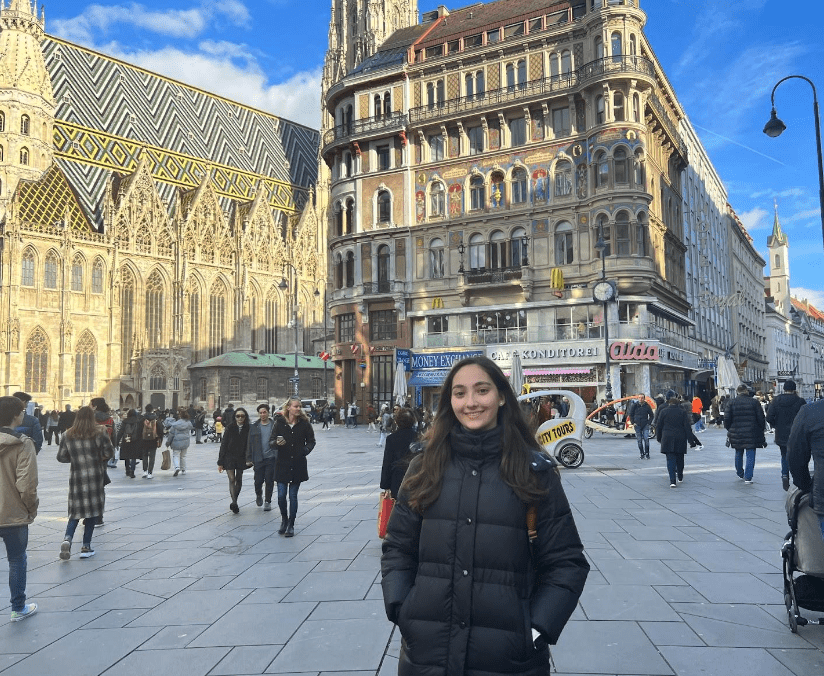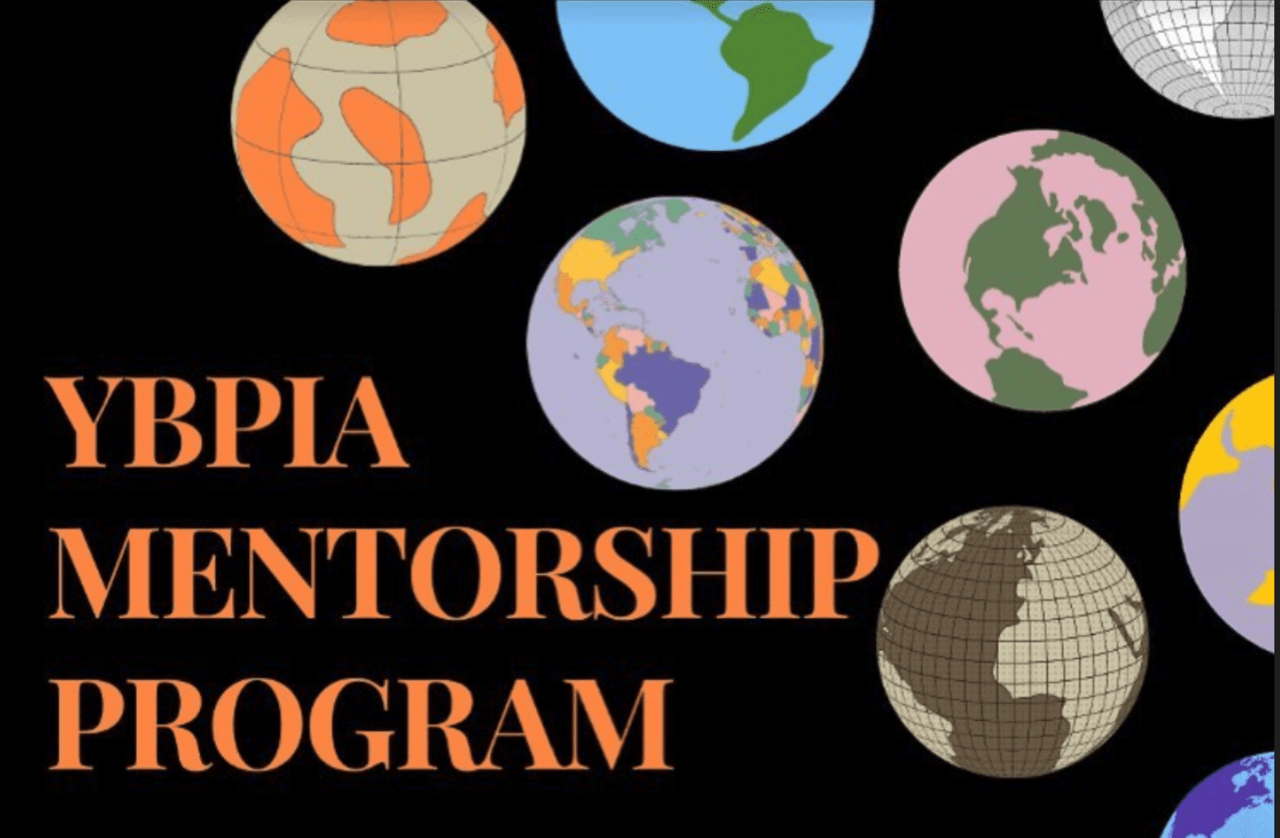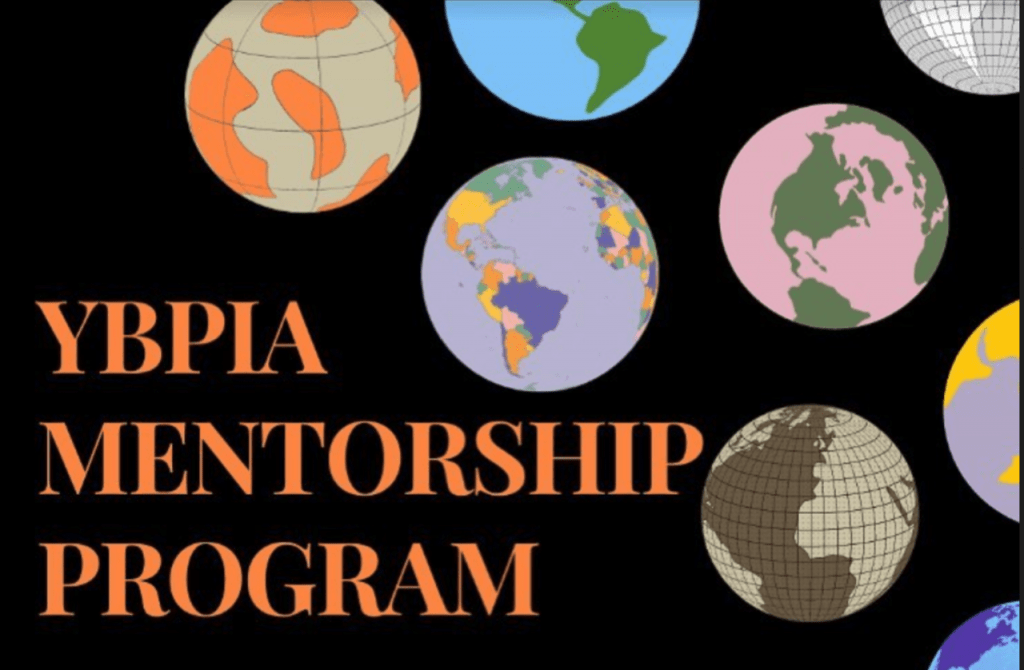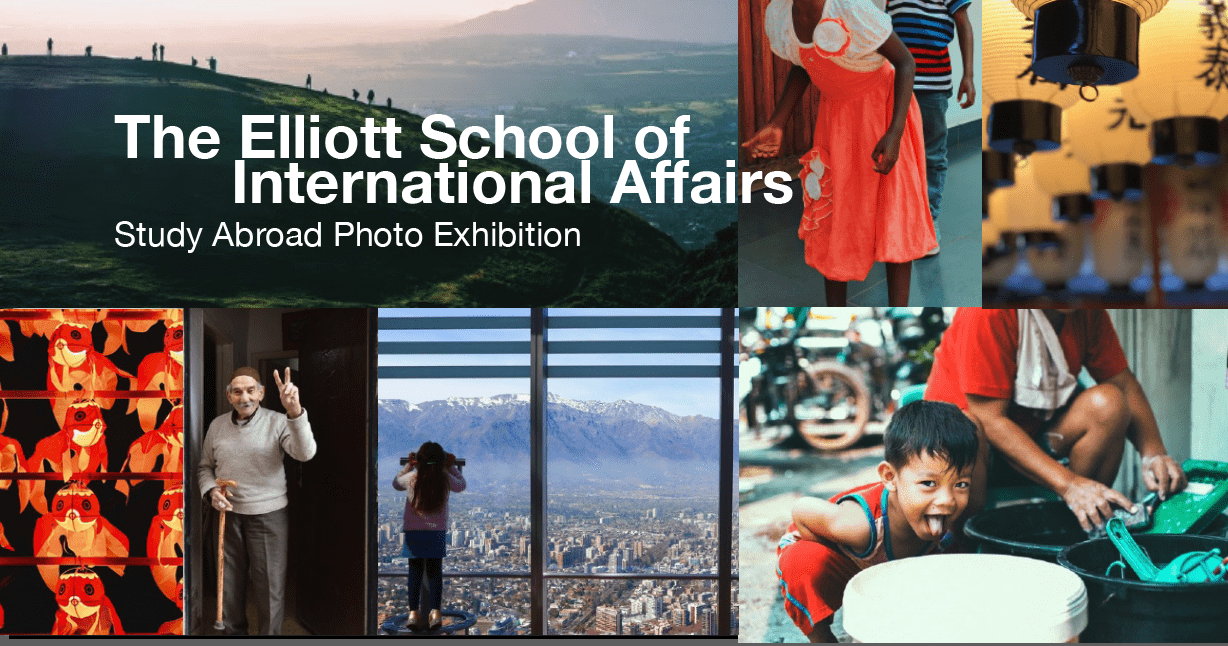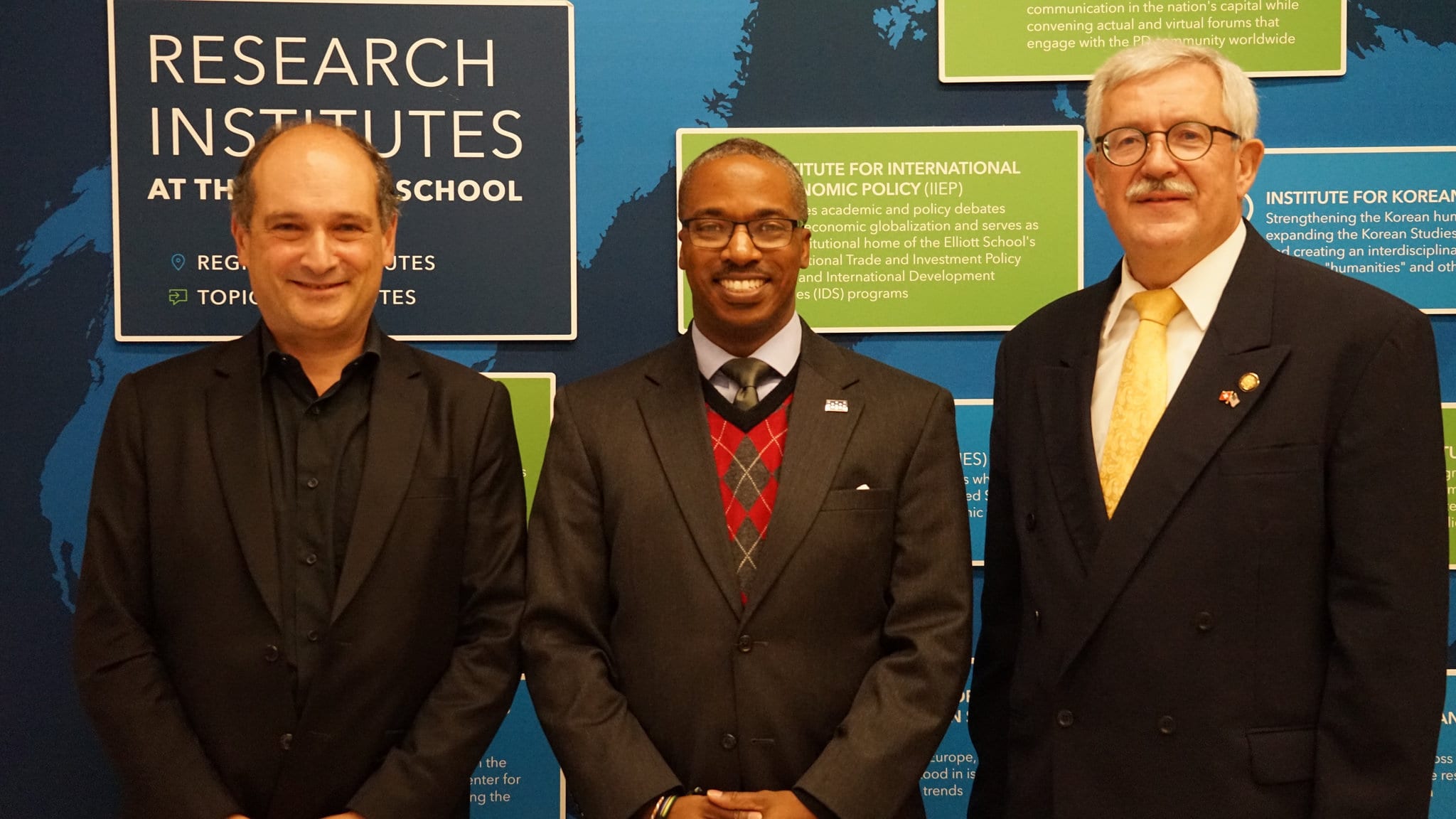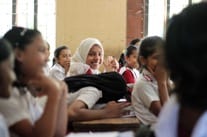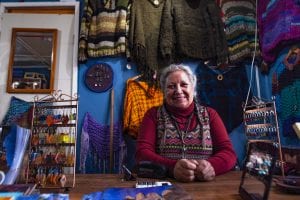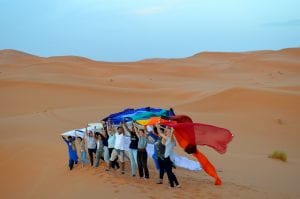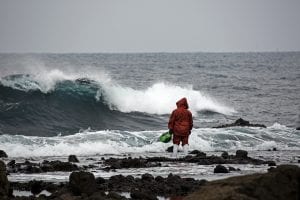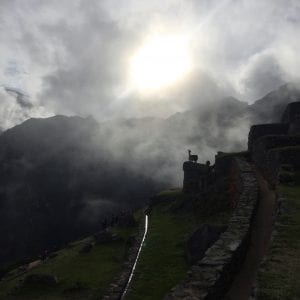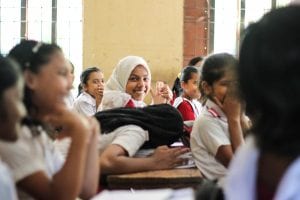On March 26th, the Leadership, Ethics, And Practice initiative hosted a conversation on leadership in national security with the 25th Secretary of the Army, Christine Wormuth. Secretary Wormuth reflected on her leadership journey and career challenges to provide insight on the next steps for the US’s national and international security and the future of our nation. Secretary Wormuth engaged in a moderated conversation with Dean Alyssa Ayres, who asked the Secretary a myriad of questions, including the US Army’s strategies to establish a culture of accountability and the next steps for the army’s integration and adaptability. The school held this event under Chatham House Rules to give students unprecedented opportunities to hear from national and international leaders and provide broad strokes about the topics Secretary Wormuth discussed.
Student Voices: An Open Letter to the World Food Forum
Six GW graduate students share their thoughts after representing the Global Food Institute at the global forum in Rome, Italy.
Authored by: Sydney Pryor, Kailey McNeal, Nicholas Smaldone, Juan Archila Godinez, Lois Maison, Angela Tarana

While the draw of authentic cacio e pepe just might be strong enough to pull some of us from D.C. across the Atlantic, it was the 2023 World Food Forum (WFF) that brought us to the Food and Agriculture Organization of the United Nations (FAO) headquarters in Rome, Italy.
Our group of six graduate students from the George Washington University in Washington, D.C., represented the GW Global Food Institute as a youth delegation to the WFF. The six of us also share the belief that the policies that currently govern agrifood systems uphold the interests of governments and powerful industry groups at the expense of human health, social justice and the future of the planet.
As collective first-timers to any United Nations convening, we want to provide you with our insights as six individuals with diverse, yet often overlapping, reflections on our time and the opportunities we see to make the WFF more inclusive and action-oriented. Although this year’s WFF did an amazing job of bringing together compelling voices and actors from across the globe for important discussions, there were also a few key areas of improvement that would have made the event that much more successful.
Here are our “sweet” (our favorite parts) and “sour” (our not-so-favorite parts) reflections and our suggestions to strengthen the WFF experience for future youth food systems advocates.
What is the World Food Forum?
The WFF is a global platform to transform agrifood systems with the 2023 theme of “Agrifood systems transformation accelerates climate action.” The forum was composed of three interconnected events—the WFF Global Youth Forum, the FAO Science and Innovation Forum and the FAO Hand-in-Hand Investment Forum.
These were intended to facilitate intergenerational and cross-sector conversations about the transformation of agrifood systems at the local, regional and global level. The WFF Global Youth Forum was specifically designed to change the conversation around food and agriculture by giving young people a seat at the table and fostering youth-to-youth connection through open dialogue and a series of cross-cutting events.
Opportunities to attend the Global Indigenous Youth Forum
At the same time as the World Food Forum event, the FAO also held the Global Indigenous Youth Forum. Although they were separate events, they both took place at the FAO headquarters allowing us to attend several sessions of the Indigenous Youth Forum.
Although we appreciated being able to attend the sessions within the Global Indigenous Youth Forum, we were disappointed that the Indigenous youth event was separate from the WFF because Indigenous youth are an integral part of any youth-focused agrifood system discussion. While recognizing the value of having a separate space for Indigenous youth, it was off-putting to have the event at the same time and place as the WFF, as if to silo the two groups and create a false dichotomy between Indigenous and non-Indigenous youth in agrifood systems.
Limited opportunity for open dialogue and minimal action items
The Sour: The sessions we attended were valuable for continuing to think about actions to implement for agrifood systems transformation and environmental protection. However, the panel sessions lacked the opportunity for meaningful insights from panelists. We appreciated the efforts of the panelists to convey their messages in a very short time, but the lack of time limited panelists’ contributions to their pre-prepared speeches, inhibiting any dialogue between speakers.
Room for improvement: We suggest the organizers:
- Decrease the number of panelists
- Ensure higher-level policy- and decision-makers are in attendance
- Keep an open mind and a positive, solutions-oriented mindset
- Increase the structured participation of decision-makers at roundtables
- Open all WFF sessions to youth attendees
Misalignment of the 2023 WFF theme
Unfortunately, the forum theme this year of “agrifood system transformation to accelerate climate action” seemed like an afterthought during many of the forum’s central deliberations.
Our policy deliberation at the WFF was only centered around changing behavior at the individual level in schools through education. Despite the importance of childhood education around food and agriculture and the need to connect students with how their food is produced and prepared, we felt this hyperfocus on education significantly inhibited our ability to propose policies that could drive “agrifood system transformation” and led to a lack of disruptive change policies.
Policy actions should not only facilitate the consumer’s ability to make healthy and sustainable food choices, but also incentivize the producer’s participation in an economically rewarding and just transition and empowering workers through stable livelihoods and protections.
Room for improvement: We suggest the organizers:
- Provide more time for deliberation around larger systems-level challenges
- Democratize the process of choosing data and policy priorities
- Ensure transparency in the agenda setting process
Looking forward, we need the guidance and insight of those with experience in the critical topics being discussed at the WFF and more seats at the table for diverse agrifood system perspectives. We believe that together, across generations, we can do more “to move the needle.” We appreciated the opportunity to listen, engage, be inspired and critically reflect on the urgency of transforming our agrifood systems and moving from conversation to action.
(This letter was edited for space. Read the students’ full open letter on the Planet Forward website.)
Individual Reflections on the World Food Forum
Read the students’ full reflections by clicking on the links below.
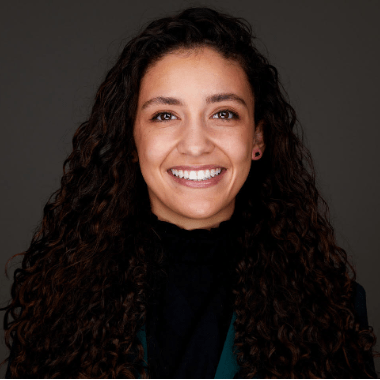
“As someone who is passionate about transforming food systems for the benefit of racial justice and animal protection, I was eager to connect with other young advocates globally on these issues. While the forum provided opportunities to share ideas with other young people engaged in bettering food systems, I was disappointed by the lack of acknowledgement of the role that systemic factors play in the transformation of food systems.”
Assessing the youth role in food systems transformation
Kailey McNeal
GW Law ’24
“People from all over are thinking about the impact of our food production and consumption on the environment, on livelihoods, on our future—and advocating for an agrifood system transformation that is healthy, sustainable, and socially just.
The dichotomy of plant-based diets vs livestock
“Thinking about how best to communicate this urgency, how to hold governments and corporations accountable, how to empower communities. People are calling for innovation, and not just the start-up kind, but innovative pathways for preserving, scaling and repurposing traditional knowledge and practices to our urgent crises. But how do we better address this question?”
Sydney Pryor
Milken Institute SPH Ph.D. candidate in Health Policy
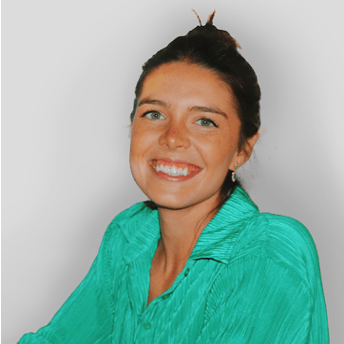
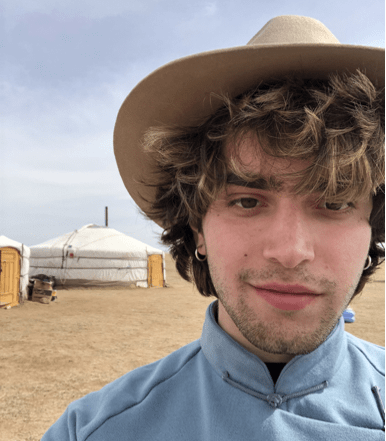
“We youth, as a group, are more than just a category defined by age. We are intersectional and multi-faceted in our identities. Our struggle overlaps with other marginalized and undervalued groups in society, such as Indigenous peoples, women, gender and sexual minorities, people with disabilities, poor people and more.”
An open letter to my fellow youth and our future leaders
Nick Smaldone ’23
CCAS M.S. candidate in Geography
“Each session I attended, and every interaction I had, was a vivid tapestry of insights. Voices ranged from smallholder farmers to academics, from private sector mavens to policymakers, each contributing to a rich mosaic of perspectives. The diversity underscored the multifaceted nature of our quest for food security—a challenge demanding nothing less than collaborative ingenuity.”
Passionate young voices come together
Angela Tarana
Elliott School M.A. candidate in International Development
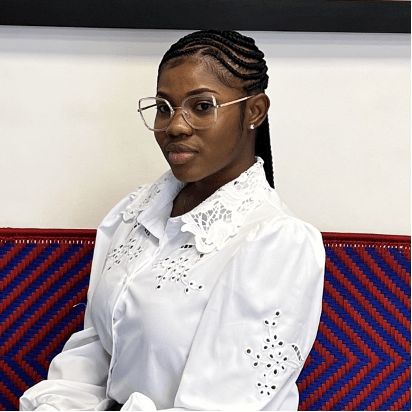
New Middle East Study Abroad Program Partners with Howard University

In a new partnership, the Elliott School’s Institute for Middle East Studies (IMES) is collaborating with Howard University to offer a Middle East Studies Abroad Program in Oman, offering GW students an immersive experience in the heart of the Middle East’s rich culture and history.
IMES’s latest project is made possible through a grant from the U.S. Department of Education. This partnership between the Elliott School and Howard University underscores IMES’s commitment to expanding access to Middle East-focused resources within ESIA, enriching the experiences of students and faculty alike.
The Elliott School is known for its standalone degree program in Middle East Studies.
Leading the program is Dr. Attiya Ahmed, the Director of the Institute for Middle East Studies. Collaborating on this effort is Dr. Shana Marshall, the Associate Director of IMES.
Dr. Ahmed’s leadership has been instrumental in crafting an immersive educational experience for students, set to take place in Oman during the upcoming Spring semester.
At the heart of this project is Professor Mohssen Esseesy from GW, an authority in Middle East Studies. His expertise promises an engaging and intellectually stimulating experience for all participants. Collaborating closely with him is Raslan Moutraji, an Arabic instructor at Howard University, who has played a pivotal role in identifying advanced Arabic students from Howard, ensuring a diverse and enriching learning environment.
IMES’s Middle East Studies Abroad Program in Oman offers an exceptional opportunity for GW students, alumni, and faculty to immerse themselves in the vibrant culture, language, and history of the region. This partnership with Howard University underscores GW’s commitment to providing a well-rounded education and global experiences to its community members.
“This collaboration reflects our commitment to fostering global perspectives within the ESIA community and providing our students with transformative educational experiences,” noted Dr. Shana Marshall, Associate Director of IMES.
This partnership demonstrates the value of collaboration between academic institutions in enhancing the educational journey of students, alumni, and faculty members. As the Spring semester approaches, members of the GW community are preparing for an adventure that will broaden their horizons and deepen their appreciation for the cultures of the Middle East.
For more information about this collaboration and updates on the Middle East Studies Abroad Program in Oman, please reach out to Dr. Shana Marshall, Associate Director of the Institute for Middle East Studies at GW. IMES continues to serve as a valuable resource within the ESIA community, promoting academic growth and cultural understanding.
Elliott Undergraduate Research Fellow Presents at Arctic Science Summit
Anissa Ozbek, a third-year student in the Elliott School of International Affairs and an undergraduate research fellow, traveled to Vienna, Austria, this February with the GW delegation to the 2023 Arctic Science Summit Week. There, joined by Professor Marya Rozanova-Smith she presented findings from the COVID-GEA Project, which seeks to understand the gendered impacts of COVID-19 in the Arctic.
“I have been a research assistant on the project since 2022, so I was very excited to share the COVID-GEA Project’s preliminary results alongside our Principal Investigator, Dr. Rozanova-Smith at the Arctic Science Summit Week(ASSW) before world-class scholars in the field of Arctic studies,” said Ozbek.
Ozbek’s topic, “Gender Equality for Sustainable Arctic Communities Amid and Beyond the COVID-19 Pandemic,” focused specifically on the case of Alaska, examining initiatives passed in Fairbanks, Anchorage, Nome, and Juneau, as well as by the Alaska state legislature.
At the conference week, Ozbek assisted Dr. Rozanova-Smith in presenting the COVID-GEA project’s audio-visual exhibit, titled “Arctic Women’s Voices:Standing Strong in the Face of COVID-19,” which gives Arctic women a platform to discuss how the pandemic affected them.
Conference attendees at the ASSW heard from experts across the natural and social sciences on a range of topics, from the effects of light pollution on Arctic ecosystems to Indigenous stewardship practices.
As Ozbek considers a career in research, attending the ASSW provided her with the invaluable opportunity to learn about key aspects of scholarship, including presentation skills and collaboration, firsthand.
YBPIA Launches Mentorship Program
The Young Black Professionals in International Affairs (YBPIA) student organization is proud to announce the launch of their Mentorship Program. They are looking for graduate students, alumni, and early to mid-career professionals in international affairs to serve as mentors for Elliott School undergraduate students. You can learn more about the program and apply through YBPIA’s Linktree page, which includes application forms for undergraduate and graduate students, as well as alumni.
All Elliott School students and alumni are also invited to YBPIA’s first Student-Alumni Mixer, which will take place on Zoom on November 11. Participants will meet the student members of YBPIA and connect with alumni interested in their efforts through breakout rooms and conversations. YBPIA will also discuss their plans for the mentorship program.
Founded this summer, Young Black Professionals in International Affairs is a student organization committed to enhancing African and African diaspora (African-American, Afro-Latinx, Afro-Caribbean) perspectives, conversation, participation, and scholarship in both the Elliott School of International Affairs and the field of international relations overall — through mentorship, professional & academic development, and community. For questions or concerns, please email YBPIA at ybpia@email.gwu.edu.
Public Exhibitions Feature International Storylines and Destinations
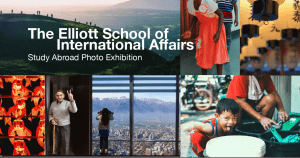 Seems like everywhere you turn at the Elliott School, you’ll find a new photo exhibit highlighting its students, its significant areas of research, or partnerships with local embassies. Making use of the available community spaces in the building to showcase the wide-ranging blend of art and research through the prism of international affairs makes for an #onlyatGW experience. All exhibits are free and open to the public on weekdays 7am -10 pm.
Seems like everywhere you turn at the Elliott School, you’ll find a new photo exhibit highlighting its students, its significant areas of research, or partnerships with local embassies. Making use of the available community spaces in the building to showcase the wide-ranging blend of art and research through the prism of international affairs makes for an #onlyatGW experience. All exhibits are free and open to the public on weekdays 7am -10 pm.
CURRENT EXHIBITIONS at the Elliott School of International Affairs
Basement: Colors of Ecuador, featuring the work of Ecuadorian artist, Manuel Avilés, consists of 15 photos of Ecuador’s people and landscapes. (Runs through Oct 14)
1st Floor: 3rd Annual Study Abroad Photo Competition, a group exhibition of photos taken by Elliott School students during their studies and travel abroad. (Runs through Nov 30)
Second Floor: The Researcher and His/Her Fieldwork in Central Eurasia
As part of the 20th Annual Conference, Central Asian Studies Society (CESS), the organizers invited scholars and journalists to submit photos of Central Eurasia that reflect on the relationship between the researcher and the object of research and illuminate the different faces of fieldwork. (Runs through Oct 30)
COMING EXHIBITIONS at the Elliott School of International Affairs
Basement: Beginning Oct 22
We want Freedom: The Fall of the Communist Regime in Slovakia in 1989
In celebration of the 30th anniversary of the Velvet Revolution, the Embassy of Slovakia in cooperation with the Bratislava-based Nation’s Memory Institute will display an exhibit to commemorate the tragedy of people in Czechoslovakia under the years of totalitarian regime, as well as the extraordinary moments that led to its demise.
2nd Floor: Beginning Nov 11, 2019
Waging Peace exhibit opening and reception 5:00-7:30 pm, 2nd floor Atrium
November 15th marks the 50th anniversary of the Vietnam War Mobilization March on Washington, a gathering of over half a million demonstrators against the war. Engaging participation from across the university and the local community, we offer a series of events to educate students and the general public about often overlooked facets of the history of US involvement in Vietnam, including the impact that antiwar GIs and veterans had on ending the war.
Elliott Faculty Working on Green New Deal Policy
The Green New Deal has received considerable media coverage in the build-up to the 2020 Presidential Election. According to Data for Progress, “The Green New Deal is an ambitious policy agenda to tackle the climate crisis, create quality jobs, and promote justice. It has become a core element of many Democrats’ platforms in the 2020 Presidential race, with more than half of all candidates endorsing the Green New Deal and widespread, bipartisan support among American voters.”
Two Elliott School faculty members, Marcus King and Nina Kelsey, whose research interests center around environmental and energy security, climate change, and international environmental policy, are highly focused on policy issues related to the Green New Deal. Dr. King and Dr. Kelsey share a few of their thoughts here.
“I am researching how climate-change-related impacts such as drought, extreme weather, and sea level rise affect state stability in nations when there is a high potential for humanitarian disasters on violent conflict. My latest publications are about how drought conditions and water stress can be exploited by actors during internal conflict. So the way I describe things is that there are three focal areas of climate change: mitigation, adaptation, and than consequences of failure to adapt. I situate my work in the third category — the consequences of failure.”
“I am interested in feedback processes between energy and environmental policy on the one hand and interest groups on the other hand. So, for instance, if we pass a renewable support policy in 2014, how does that change the configuration of industry or consumer/voter interest groups in subsequent years, and how does that change in turn affect the politics around future policies that we might try to enact? So for the Green New Deal (GND), I think about questions like how the sequencing of different parts of the GND might impact the likelihood that it could be implemented overall. Are there better or worse places to start, that are more or less likely to rapidly build support for later steps?”
Issues like international environmental policy are a great example of Elliott School faculty working on real problems that have the potential to positively affect our future. Since one compelling aspect of international affairs that draws students to study it are the chance for creating impact and change, it is exciting to see faculty research directly connected to current policies between debated like the Green New Deal.
Elliott School Honors Life, Legacy of Swiss Diplomat Carl Lutz
More than 100 students, faculty, staff and residents joined us at the Elliott School on Tuesday, Oct. 23, to hear about the late Swiss diplomat Carl Lutz, whose bravery and tireless efforts saved the lives of 62,000 Jewish people living in Hungary during the Holocaust. Lutz has a GW connection, having received his B.A. from the Columbian College in 1924.
Lutz acted “without hesitation to help the Budapest Jewish community,” said Martin Werner Dahinden, the ambassador of Switzerland to the U.S, at the event. Lutz received his bachelor’s degree in 1924 from GW’s Columbian College of Arts and Sciences and is a three-time Nobel Peace Prize nominee.
“There is a reason why we need to remember and keep the memory of people like Carl Lutz alive,” Dahinden said. “He serves as a role model for future generations. We want to remember the heroism so that it continues unabated.”
Lutz’s rescue strategy involved issuing letters of protection that helped guarantee a Jewish person’s safety in Hungary. He negotiated with the country’s government and German regime to secure 8,000 of these letters to hand out to Jewish residents of Hungary. He then secretly issued tens of thousands more letters than he was originally granted, which historians say was the largest civilian rescue operation of World War II.
Lutz also set up 76 safe houses in Hungary that were under Swiss protection.
The Oct. 23 event also featured remarks from Dean Reuben Brigety; Frederic Hayat of the G.I.L. Reform Jewish Community of Geneva, Switzerland; Agnes Hirschi, Lutz’s step-daughter; and Katrina Lantos Swett, the president of the Lantos Foundation for Human Rights and Justice.
Swett said Lutz was “willing to shred the rules to do what was morally right.” She emphasized that it is important to study his story and actions to help “show the path” on what to do when faced with seemingly intractable moral challenges.
The event was sponsored by the Institute for European, Russian, and Eurasian Studies, Embassy of Switzerland, the Lantos Foundation for Human Rights and Justice and the Hungarian American Coalition. View our photo album from the event.
Bringing Student Experiences Abroad, Home to the Elliott School
Every year, Elliott School students travel the globe in search of international education, overseas internships and connections abroad — and of course, the thing that sets Elliott School students apart — real-life, in-the-field experiences. This past academic year was no exception. The submissions from the annual Elliott School Abroad photo competition were exceptional.
We received submissions from faraway locations including Brazil, Serbia, Norway, Chile, Uganda, and the Korean Demilitarized Zone. They depict breathtaking landscapes and stories of humanity, often focusing on visual portrayals of the international struggles Elliott School students have witnessed and hope to one day help to solve.
This year, due to the quality and variety of submissions, the Elliott School will hold an exhibition of the featured photography and host an opening reception on October 25, located in the Elliott School’s second floor atrium space. At the conclusion of the exhibit, the students will have the opportunity to take the prints home to hang as a reminder of their accomplishments and time abroad.
We are pleased to announce the winners of this year’s Elliott School Abroad Photo Contest!
Honorable Mention:
Bellín submitted by Cole Falkner, B.A. ’20
Chile
“In Puerto Natales, I walked into a woman’s shop. The walls were littered with handsewn sweaters, intricately crafted jewelry and a myriad of photographs all made by local artists or herself. We spoke about the art in the shop, and I bought some photos, then she let me take her photo. Her name was Bellín.”
Honorable Mention:
The Saharan Situation submitted by Calla Gilson, B.A.’18
Morocco
“This photo was taken in the desert as each member of my study abroad cohort raised their unique color of the traditional dyed scarf of the region to billow in the breeze. The contrast of the colors against the Saharan sand reflects the vivid nature of my time in such a colorful country.”
Honorable Mention
Battling the Sea submitted by Yongbao Zhuang, B.A. ’20
Aomori, Japan
This photo was shot on the coast of the Sea of Japan in the northeastern prefecture of Aomori, and depicts a local fisherman battling against the storm while fishing for clams and oysters. The Aomori Prefecture, along with Iwate and Miyagi prefecture, are located near the Japan Fishing Ground— one of the countries and is in decline due to overfishing.
3rd Place:
Machu Picchu Sunrise submitted by Lauren Bell, B.A.’19
Peru
After a four-day trek through the Inca Jungle, the group I was with hiked up to Machu Picchu around 5 in the morning. When we arrived at the top the sun was rising above the foggy mountains and there were more alpacas and people. It was a new, beautiful world for me.
2nd Place:
الشاي مع الأصدقاء (Tea with friends) submitted by Shannon McKeown, B.A.’19
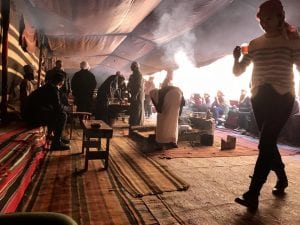 Wadi Rum desert, Wadi Rum Village, Jordan
Wadi Rum desert, Wadi Rum Village, Jordan
This picture was taken in a traditional Bedouin tent in Wadi Rum desert in Jordan. Tea is an important part of Jordanian culture as it facilitates social interactions and a sense of community.
1st Place:
Joy submitted by Chinwe Weli, M.A.’18
Meherpur, Bangladesh
This photo was shot at a local school in the Meherpur district in Bangladesh. The female students are captured laughing excitedly after answering a question in class. Their school recently received a multimedia classroom from Save the Children as the government works to introduce innovative solutions to the primary education system.
Thank you to everyone who submitted photos. It truly was the most impressive group the Elliott School has ever received. And don’t forget to capture your experiences this year! We hope to see everyone at the exhibit’s opening reception on October 25, 2018.



